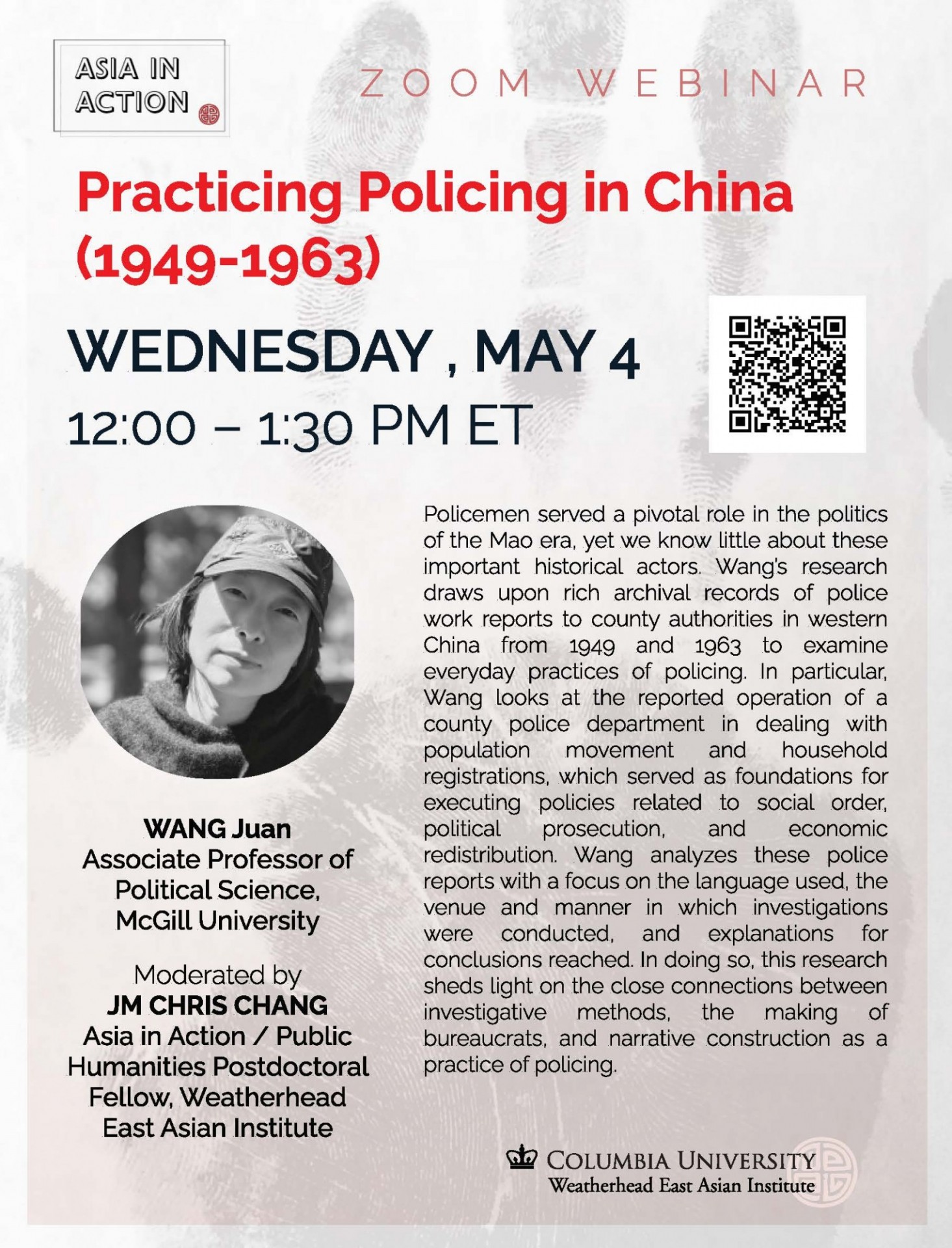Policemen served a pivotal role in the politics of the Mao era, yet we know little about these important historical actors. Wang's paper draws upon rich archival records of police work reports to county authorities in western China from 1949 and 1963 to examine everyday practices of policing. In particular, Wang looks at the reported operation of a county police department in dealing with population movement and household registrations, which served as foundations for executing policies related to social order, political prosecution, and economic redistribution. Wang's paper analyzes these police reports with a focus on the language used, the venue and manner in which investigations were conducted, and explanations for conclusions reached. In doing so, this research sheds light on the close connections between investigative methods, the making of bureaucrats, and narrative construction as a practice of policing.
Speaker: WANG Juan, Associate Professor of Political Science, McGill University. Professor Wang writes about authoritarian politics and law and politics with an empirical focus on China. Her research, some of which collaborative, has appeared in Governance, Problems of Post-Communism, Journal of Comparative Law, Crime, Law & Social Change, The China Quarterly, Modern China, Journal of East Asian Studies, Journal of Contemporary China, Asian Journal of Law and Politics, and Journal of Chinese Political Science.
Moderated by JM Chris Chang, Asia in Action / Public Humanities Postdoctoral Fellow
This event is the last in a four-part Asia in Action workshop series, "Remapping the Archives: New Histories of the PRC" at WEAI.
Series description:
In the present moment, intensifying historical censorship in China–compounded by the lasting impacts of the pandemic–has severed access to the archive as we once knew it. The Modern China field has been forced to reckon with the possibility that access to PRC sources may soon become exceptional, and that its foreclosure portends a post-archival future. What is history without archive, or archive without history? The purpose of this four-part series is to explore promising responses by several scholars to this crisis in the archive, both as a means of illuminating new methodological directions in PRC history as well as reexamining perennial historical questions from a new aspect.

